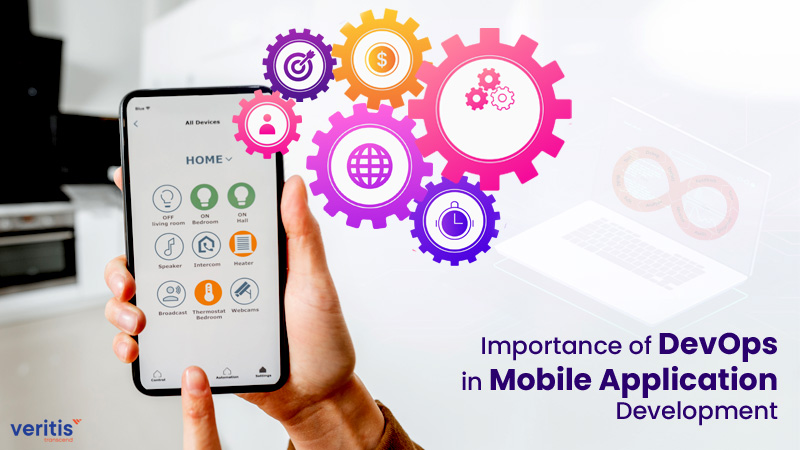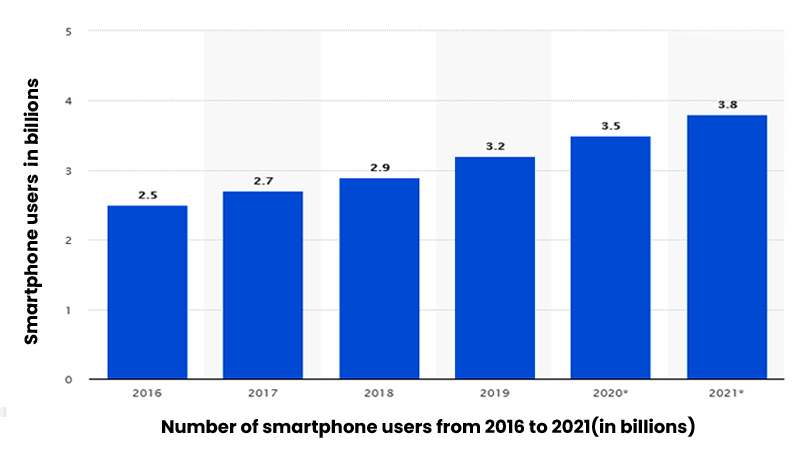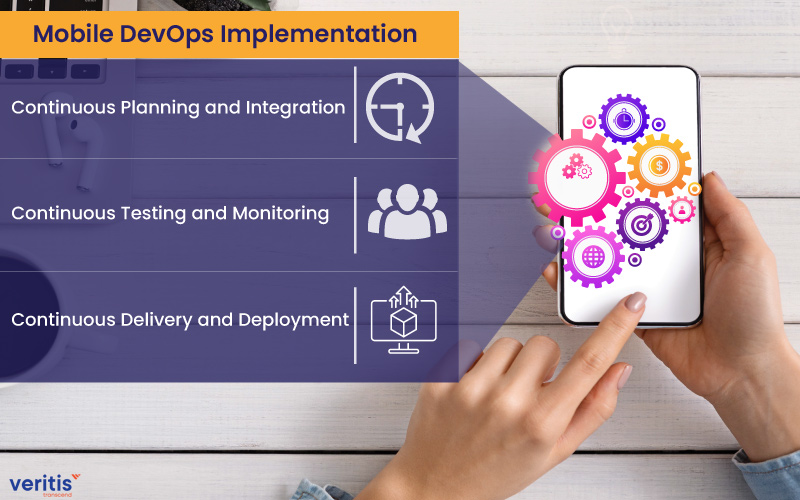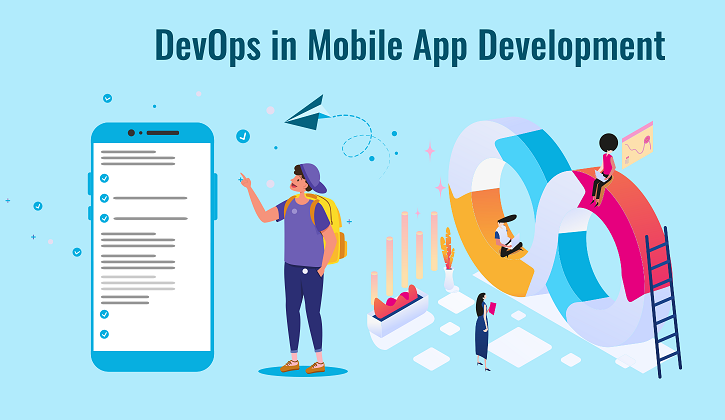Role of Devops in Mobile App Development
Importance of DevOps in Mobile Application Development

As per the global forecast by Markets and Markets, the DevOps market size is projected to grow from USD 3.4 billion in 2018 to USD 10.31 billion in 2023, at a CAGR of 24.7%.
The growth of the DevOps market is determined by several factors, comprising of enhanced complexities in applications and the need for continuous and fast application delivery in a dynamic IT setup.
Moreover, with the increased adoption of Artificial Intelligence, Machine Learning, and cloud, the DevOps market is predicted to gain significant traction. Other facets accountable for the DevOps market growth are the need for improved collaboration among IT teams, the organizational focus on reducing operational expenses, and the digitization of enterprises for automating businesses.
DevOps for Mobile App Development
Today, the extent of smartphone users has exceeded 3 billion, and it is expected to grow by several hundred million within the subsequent years, as per Statista.

DevOps for mobile app development is a current tactic that allows seamless application delivery from the stage of inception to production. DevOps ceases the development-operation barrier, and it is a retreat from the conventional waterfall methodology to software development.
The exclusive technique emphasizes real-time collaboration amongst the stakeholders, comprising project managers, mobile app developers, and operation staff, for creating a digital product.
Fostering a collaborative culture amongst team members is the prime notion behind developing DevOps for mobile app development. By implementing DevOps, it has become easy to align business goals, delivering higher value to clients.
According to a market study, it is confirmed that organizations that have implemented DevOps have benefitted a 63% improvement in software deployment quality, and about 63% released new software frequently.
How to Implement Mobile DevOps?

Successful adoption of DevOps for mobile app development entails implementing three fundamental steps as discussed below:
1) Continuous Planning and Integration
Continuous planning refers to the collaboration of the entire mobile app project team, including developers, operations staff, project manager, and other relevant stakeholders, to finalize the scope of work for mobile application development.
Continuous integration ensures that the code developed by one developer seamlessly integrates with the code delivered by another developer. It demands frequent builds, which must be integrated with the last developed code.
2) Continuous Testing and Monitoring
Typically, mobile app testing is conducted manually on simulators and emulators instead of the real environment. But organizations must understand that a mobile app can perform well in a test environment and may fail in a real environment.
Therefore, it is crucial to adopt automated testing to improve the process of handling regular builds, bug identification, and error rectification. Moreover, ensure continuous performance monitoring by implementing third party SDKs to determine the cause of failure.
3) Continuous Delivery and Deployment
In continuous delivery, the code is deployed to the production environment by submitting each fix or change to the production-like environment.
Continuous deployment automatically deploys each change, that has been approved by continuous testing, to the production environment.
How Mobile DevOps Helps Avoid Bottlenecks and Inefficiencies?

Mobile DevOps make mobile application development processes efficient and faster while improving internal communication. When organizations effectively align mobile DevOps processes, practices, and tools, the following bottlenecks and inefficiencies can be avoided:
1) Inconsistent Development Environment
Mobile app development environment comprises of tools, frameworks, hardware, and software. Mobile DevOps is responsible for workflow maintenance and how different aspects work together.
2) Human Errors
Any unexpected human intervention can quickly lead to errors that significantly impact the entire application development workflow. Mobile DevOps ensures that the application development environment is planned for full automation, eliminating all manual interventions.
3) Manual Testing Process
Effective testing is imperative to develop better mobile apps and deliver unique and innovative feature updates. Mobile DevOps encourages an automatic, continuous testing process to measure and validate all parts of the code from start to delivery, including any changes applied in the lifecycle.
4) Lack of Ownership
It is very common that not every employee knows who is responsible for the process and who will get it straight. The right mobile DevOps approach demands clearly defining the roles and responsibilities of all the employees involved in the mobile development process.
The ROI of Mobile DevOps
Implementing mobile DevOps can be challenging and complex, but the benefits of DevOps are manifold.
Benefits at a glance:
- Improved customer experience
- The stable setting for easy deployments
- Better collaboration amongst team members
- Quick-release time
- The faster resolve of bugs and errors
- More time for innovation
- Quality software delivery
- Reduced Risk
The Crux of the Matter
There are several benefits of DevOps, and implementing DevOps could be a complete game-changer for an organization. Veritis, with proven excellence in IT, provides an effective DevOps implementation strategy, facilitating clients in incremental development, workload management, security, and automated testing techniques.
Do you want to adopt DevOps in mobile app development? Consult Veritis DevOps consultants at 972-753-0022 or info@veritis.com for strategically implementing DevOps, and add value to your organization in terms of increased efficacy and revenue.

More Stories:
- DevOps Adoption, Strategy and Market Trends
- DevOps For Federal Agencies: Importance and Benefits
- Cloud Implementation Services: Solutions and Benefits
- What are the best DevSecOps practices for security and balance agility?
- 18 BEST DevOps Conferences in 2021 You Should Follow
Role of Devops in Mobile App Development
Source: https://www.veritis.com/blog/importance-of-devops-in-mobile-application-development/
0 Response to "Role of Devops in Mobile App Development"
Post a Comment